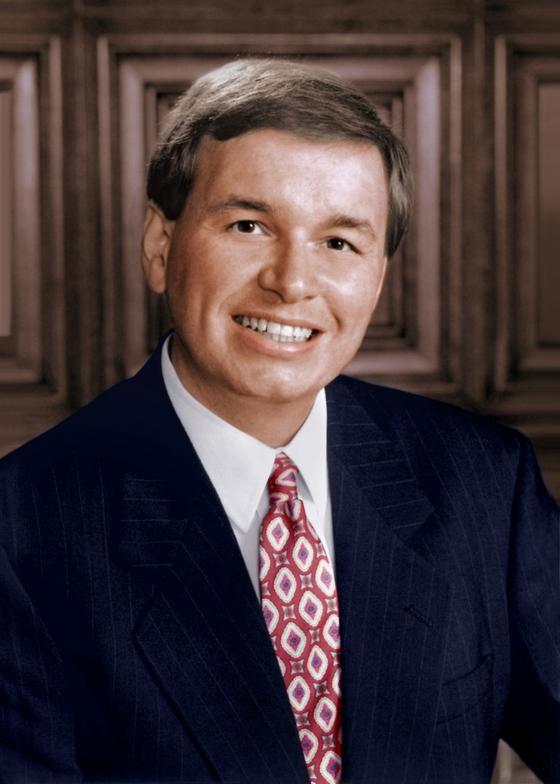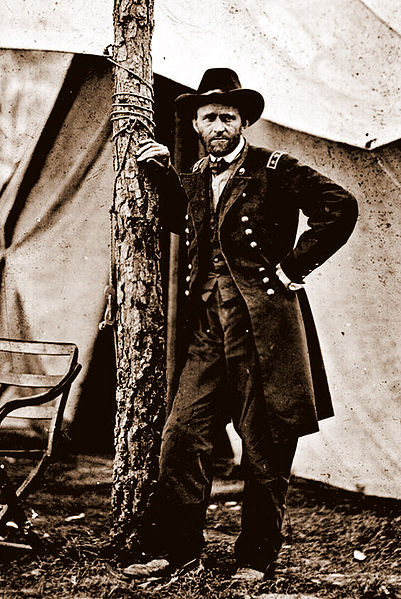Our Presidents Up-Close
John Burke Jovich
Presidential Historian
 | ||||
Adversity: Ulysses Grant's Impoverished Personal Battles
Ulysses Simpson Grant, actually named Hiram Ulysses Grant at birth, shares reverence with Abraham Lincoln for having saved the Union during the momentous War Between the States.
It may surprise many, however, to learn that Grant himself was, for several years, a destitute and depressed man who harbored a mind-numbing absence of hope during an era when government-subsidized unemployment compensation, food stamps, and other entitlements were non-existent.
Are we referring to the same Grant whose image adorns the $50 bill? The results-oriented general who was designated commander of all the Union armies by Abraham Lincoln during the momentous Civil War? The heralded military hero who went on to serve two terms as 18th president of the United States? For anyone who knew Grant in his younger years, answering these questions in the affirmative would be difficult to fathom.
So let’s presume we are accorded a sci-fi opportunity to travel back in time and become personally acquainted with Grant during the most difficult period of his life, being the mid- to late-1850s. We discover a somewhat shy, yet affable man who never uses profanity. He is in his 30s, thin, and at 5 feet 7 inches meager in stature. His hair and closely-cropped beard are sandy-brown; his eyes, light blue. He habitually smokes like a chimney, a trait common among men during that period. Gnawing on countless cigars daily, the man has no idea such proclivity will, thirty years hence, lead to his painful demise from throat cancer. Grant has a tendency to stand with one hand balanced on his hip while the other arm rests at his side, leading some to unjustly whisper of feminine, Miss-Nancyish inclinations. His father is a prosperous tanner, yet we learn how his son becomes nauseated at the sight of blood. The effects of working in a dreaded tannery environment where aged cattle are routinely slaughtered is life-long; Grant refuses to eat a steak unless it is grilled charcoal black.
Grant has many nicknames, depending on the relative or friend addressing him. His wife, a plump, cross-eyed woman named Julia calls him Ulys, while others refer to him as Captain, the rank he attained prior to resigning from the army in 1854. And buddies with whom he has served at West Point and during the Mexican War address him as Sam, a lighthearted reference to the fictional patriot “Uncle Sam”, based on his initials U.S.G.
Despite distinguishing himself as a West Point grad and effective soldier in the Mexican War, Ulys’ hope of attaining financial stability and success in the business world following his resignation from the service proves utterly fallible. We observe him build a timber farmhouse, coined Hardscrabble, in Julia’s native hometown of St. Louis. She detests the home. Ulys tries his hand at farming, but minimal crops yield a sparse annual income. He attempts to be a better provider, selling firewood on street corners in downtown St. Louis. The effort is humiliating and produces scant revenue. At one juncture he pawns his gold watch and chain. Ulys temporarily accepts a bill-collecting slot with one of Julia’s distant cousins, but soon quits in condemnation of the relative’s unethical business practices. He then takes a crack at dealing in real estate. No dice. He applies for the position of Superintendent of County Roads but it is awarded to someone else. Grant finally secures an appointment as a clerk for the United States Custom House, but his usual misfortune prevails when, after the Collector of Customs dies a mere two months later, he is out of a job.
As if his myriad financial debacles and poor business acumen aren’t enough, we find ourselves forced to acknowledge that one explanation for this kindly man’s failures is his on-again, off-again reliance on alcohol. Although not a 24-7 wino per se, Ulys frequently gives-way to the calling of whatever liquor is at hand – whiskey, beer, cheap wines – you name it. Such debaucheries with the bottle, whenever he topples from the wagon, infrequently finds him patently and pathetically intoxicated.
By 1859 we find Ulys Grant immensely depressed and tormented. The man no doubt contemplates how many additional misfortunes can endure. He and Julia have been blessed with four children between 1850 and 1858. They exhibit boundless love for their offspring, yet nothing of material substance has been set aside for their future welfare. While both his father and father-in-law are successful businessmen, what has Ulysses Simpson Grant, now 37, accomplished? His frazzled dignity is on the line; he yearns for self-reliance. Is the overly-benevolent man who would give the shirt off his back to help a neighbor too naïve to make a living? Is the inherent honesty he has adopted from his pious mother too pronounced to stimulate self-advancement in a worthwhile business venture? The last several years have been cataclysmic. With the consolidation of one financial debacle after another, abject gloom and morose are at hand -- as is the bottle.
Impoverished to the point of desperation, Ulysses Grant swallows his pride and asks his dad for a job as a leather and hide merchant. He takes a loss on the selling of Hardscrabble and relocates his family from St. Louis to Galena, Illinois during the summer of 1860, where his father and brothers run a lucrative tannery. Now on solid ground for the first time in six years, Ulys, a Democrat who enthusiastically voted for James Buchanan in 1856, is now aggravated with the incumbent president’s indecisive weakness in attempting to appease both North and South. The challenges of a new job, an adopted hometown, and the daily monitoring of newspapers headlining a weakening nation is resulting in less idle time. His penchant for the bottle is reduced and he develops a renewed confidence in himself. He loves his country. The very threat of southern states seceding from the Union loom dauntless on his mind, fueling the fire of resilience in Grant as a devout Northerner and reawakening the man’s proud West Point cadence past.
Our new-found friend Ulys is now on the road to recovery. His days of hustling firewood on St. Louis street corners are over. Although he will never completely convalesce from bouts with melancholy, depression, liquor, and those bent on taking advantage of him financially, Ulys bears a reinvigorated resolve to ameliorate himself and, ultimately, aid President Abraham Lincoln in saving a divided Nation. Some fellow officers, envious at his propensity to win battles, criticize Grant for frequently drinking in the field. But that mattered little to ol' Abe. If he were alive today, the ever-wise Lincoln might proclaim, "Removing Grant from the field would be like taking Michelangelo off the Pristine Chapel job and replacing him with Earl Scheib."
Of all the maxims that may best be ascribed to Ulysses Grant’s comeback, perhaps the most appropriate is this line penned by future President Theodore Roosevelt in his early diary: “Only if you’ve been to the lowest valley can you know how great it is to be on the highest mountaintop.”
The general Lincoln couldn't spare,
August 1864
 | ||||||




